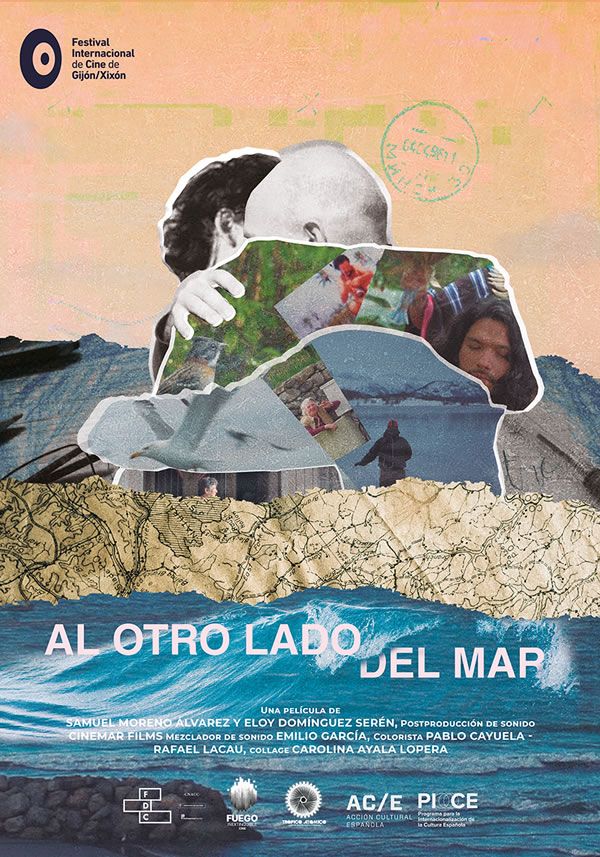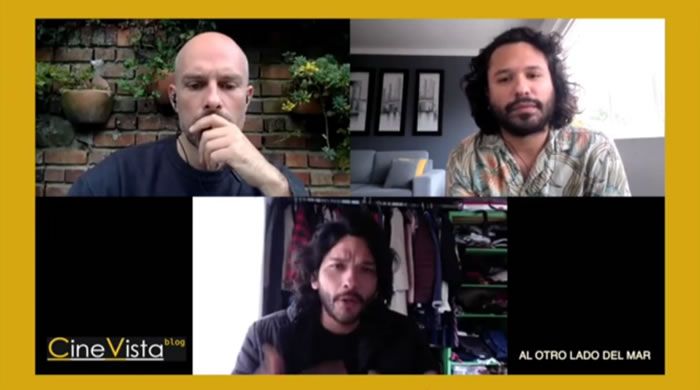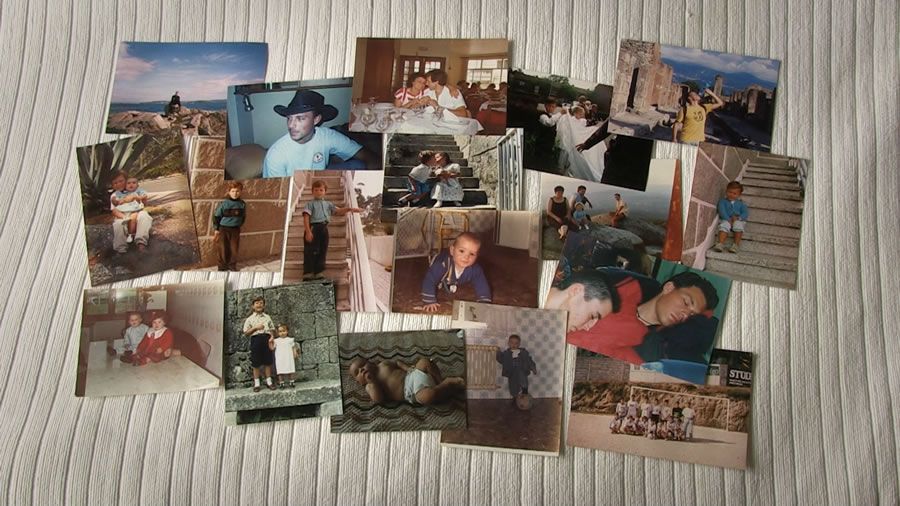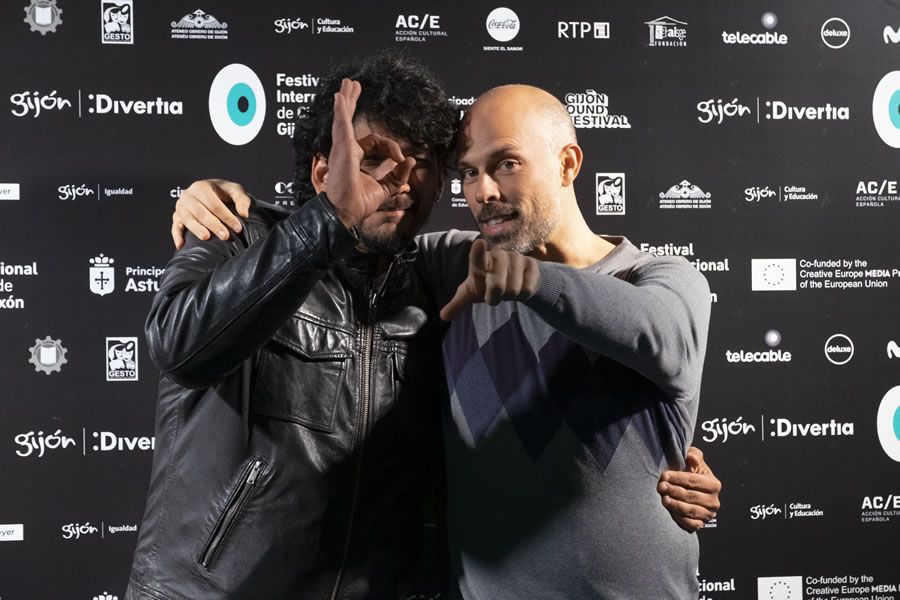06/21/2023
Al otro lado del mar: A Cinematic Exploration of Identity, Friendship, and Vulnerability
By Daniel Andrés Ruiz Sierra (@TatoRuiz)
It all begins with a story about the arrival of winter in Galicia and the aversion to rain. The narrator is Spanish film director Eloy Domínguez Serén (Hamada, No Cow on the Ice). In the story, Eloy talks about some memories of his grandmother, who also hated the rain. "My grandmother died quite young, at just 67 years old. From cancer," Eloy says, and it is inevitable not to feel melancholy when he says it. But the story doesn't stop there, as it is nothing more than a letter, but read aloud. In it, the narrative shifts to other experiences related to winter and snow, a phenomenon that, according to Eloy, the recipient is not familiar with. That recipient is Samuel Moreno Álvarez, a Colombian. Director and producer of documentary films, a recipient who also becomes an emitter. Unlike Eloy, Samuel chooses only to write and in silence.
The correspondences between them go back and forth, crossing the Atlantic. In them, each one narrates their previous adventures and experiences during the lockdown of the pandemic, perhaps one of the many reasons why susceptibility, reflection, and present and past wounds are exposed and examined. The honesty in its most explicit version.

Interview with directors Eloy Domínguez and Samuel Moreno Álvarez of "Al otro lado del mar" (The other side of the sea)
That's what "Al otro lado del mar" is about. About listening to oneself and being sincere with authentic kindness. It's about sharing various audiovisual letters reflecting on identity, family, and the importance of social relationships; a slice of life. Eloy (mostly) from Spain and Samuel from Colombia. One could even ask: What is so special and exceptional about communication between two people we don't know that would make us go watch it at the cinema? The answer, for any Catholic, for those who assume that cinema is merely entertainment, would be nothing. But for those of us who know how urgent the language of cinema can be to narrate ourselves from our individual peculiarities and to be aware of the social changes that affect us, this film is completely unmissable, special, and exceptional. "I believe it is part of a way of seeing the world and questioning ourselves," Eloy said in an interview we had at Cinevista.
Eloy and Samuel met at a film festival in Buenos Aires, Argentina, and the enchantment was mutual. They are not homosexuals. That enchantment is fueled by their love for cinema and storytelling, or rather, it serves as a witness and complement. "We were in a pitch session, presenting the project to a jury and an audience, and we were literally being torn apart, we couldn't make them understand the proposal we wanted," Samuel tells us about the genesis of his friendship with the Spaniard. "Eloy, whom we didn't know, but was in the audience (...) he stood up, asked for the floor, and came to our defense, talking about the qualities of the project and how he understood it." They continued talking after the pitch and quickly became friends.

Before the Covid pandemic forced us to lock ourselves down, this pair decided to get to know each other without feeling that distance was an excuse not to do so. Instead of making excuses, perhaps being separated by the Atlantic Ocean became a catalyst that encouraged them to exchange audiovisual letters. "It was also an exercise to keep ourselves active, what we love is filming, editing. For me, it was also wonderful to be able to look at what surrounds me," says Eloy.

In 2015, Eloy Domínguez released his first film, "No Cow on the Ice," in which he is the protagonist. It is a diary that recounts his experience as an immigrant in Sweden, following the economic crisis in his country. There, amidst precarious jobs, Eloy begins his cinematic career by portraying himself in that new experience, with the difficulties of adaptation that come with living in a country with different landscapes and a language that is not his own. Later, there were other less spontaneous projects. "Seeing Samuel's work reminded me of that innocent, beautiful, urgent, and pure way in which I made my first film (...) I recognized myself in Samuel's work," Eloy comments in the interview. After meeting each other, sharing a number of letters, and gathering them all together, they realized there could be a film there.
For me, as a viewer and seeker of stories that move me, "Al otro lado del mar" is an exercise that surprises and stimulates me, and with which I connect to the extent that it addresses topics or issues that I find important when using cinema as an instrument to gauge the pulse of reality and the contexts in which we currently exist as a society. In this joint film, I am moved by the fact that two heterosexual men choose to open up to each other. In a macho and conservative culture, it seems that the only thing men have to show special emotions for is football. For heterosexuals, and also for those who abuse a desire to appear especially "manly" as an extension of the culture in which they were raised, the opportunities to show vulnerability are minimal. Samuel and Eloy have chosen cinema not to prove their masculinity. They have chosen cinema to observe each other with their sorrows and joys. To expose themselves physically and emotionally to each other, and that is precisely, or at least for me, one of the great successes of this film, which also speaks to the greatness and significance of friendship. Not just as friendship between men.

I had the opportunity to talk to Eloy and Samuel because I had that need among others. It is not easy to find cinematic works with that intention to touch and speak of that other side of masculinity. If you wish, you can say that it is a film that speaks of "new masculinities," and perhaps I can support that to some extent. I doubt that statement, but I can understand its purpose. Here is the interview (in Spanish).
<< Go to Spanish version
